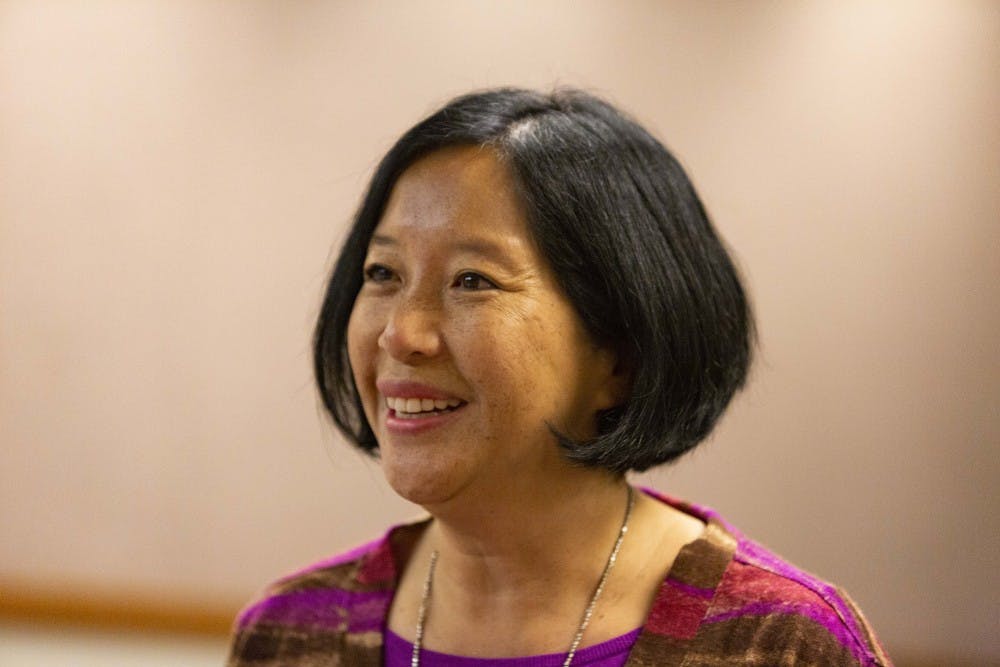Lianne Kowiak was told her son Harrison would be home for Thanksgiving in 2008. Instead, Harrison died as a result of hazing at Lenoir-Rhyne University in North Carolina before Thanksgiving break.
Harrison being hazed, and his subsequent death, completely changed her life, Kowiak, a hazing prevention speaker, said. She began speaking out against hazing to honor her son and make sure he did not die in vain.
“I needed to keep Harrison’s legacy alive,” Kowiak said.
Kowiak spoke Oct. 14 at Ballantine Hall about hazing prevention to a crowd of about 100 fraternity and sorority members. The event was organized by Phi Mu.
Senior Ashley Eissler, Phi Mu director of harm reduction and prevention, said the event is important because of its national focus and how preventable hazing is.
“It is such a big and hot topic throughout the nation,” Eissler said. “It’s such a sad thing to see people get hurt or die from hazing incidents.”
Kowiak said she speaks because she offers the perspective of a mother, rather than a person removed from the situation.
“Hearing it from the mother, hearing a personal story, should resonate with the students,” Kowiak said.
The reason she continues to speak is for the students who come up to her after the presentation and tell her the effect of her speech. Kowiak speaks for free, because she said she refuses to profit off her son’s death.
She instead asks for donations for a scholarship named after her son, to go to people interested in learning more about hazing prevention. The scholarship helps fund trips to the Hazing Prevention Institute, a multi-day seminar.
She wanted to be clear that greek life was not the only type of organization to practice hazing. Hazing also happens in varsity athletics, Kowiak said.
Eissler said she wanted to be realistic with the goal of this event. The objective of the event is to start a conversation on how to prevent hazing.
“Obviously with this event we’re not going to stop hazing altogether,” Eissler said. “Getting that conversation going and getting the ball rolling on that is a step forward in the right direction.”
Kowiak said Harrison’s death changed how she viewed death and hazing.
“One life lost is one life too many,” Kowiak said. “No one should ever be subjected to physical or emotional harm to belong to an organization.”




